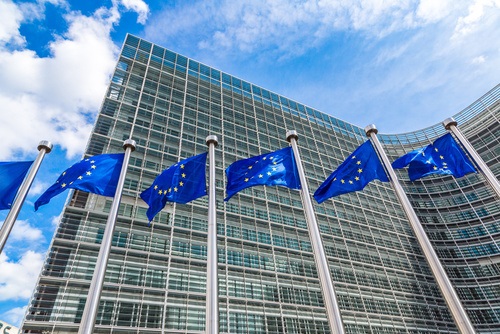Written by Milan Remáč,

Like the majority of national parliaments, the European Parliament also carries out a scrutiny and oversight function in relation to the executive – the European Commission. The European Parliament’s powers with regard to the European Commission are varied and wide-ranging. This document is an update of the original European implementation assessment (EIA) prepared in 2018 to accompany the drafting by the European Parliament’s Committee on Constitutional Affairs (AFCO) of an implementation report on ‘the Treaty provisions on Parliament’s power of political control over the Commission’. It covers the last two full legislative terms of the European Parliament (2009 to 2014 and 2014 to 2019).
The objectives of the EIA were threefold:
- first, to investigate and report on the status of the Parliament’s powers in scrutinising the European Commission, which are based on the Treaty provisions;
- second, to assess the implementation of these Treaty provisions in specific areas in which Parliament can carry out its scrutiny prerogatives; and
- third, to draw conclusions and suggest a direction for reflection on the exercise of the existing prerogatives.
The study briefly describes the background to the development of the European Parliament’s prerogatives with regard to the scrutiny of and political control over the executive. The methodology used to carry out the analysis included recourse to desk research and supporting data provided by the internal services of the European Parliament, as well as publicly available information. However, given that the assessment fed into the preparation of the AFCO implementation report on ‘the Treaty provisions on Parliament’s power of political control over the Commission’, analysis was limited to Parliament’s powers in relation to the Commission alone. In view of the time constraints involved, the cut-off date for the research is December 2009, date of the entry into force of the Treaty of Lisbon, and the Treaty provisions researched have been clustered around certain specific topics.
The study analyses the European Parliament’s powers of scrutiny over the European Commission, based on the text of the Treaties, concentrating on the following ten areas:
- electoral and institutional issues,
- motion of censure and withdrawal of confidence in individual Commissioners,
- parliamentary questions,
- inquiry committees and special parliamentary committees,
- reporting, consultation and provision of information,
- budgetary issues,
- legislative procedure,
- delegated acts,
- legal proceedings,
- external relations.
The analysis concludes that Parliament is well aware of the Treaty provisions allowing it to scrutinise and control the Commission. However, Parliament’s actual application of these prerogatives in individual areas varies as to their number, frequency and impact on the Commission and its work. The study notes that the Commission tries to fulfil its obligations towards the Parliament in areas where the Treaties oblige it to do so.
The study also notes that the impact of Parliament’s scrutiny prerogatives could be improved with regard to some of the fields, such as committees of inquiry, special parliamentary committees, and legislative procedures linked to Article 225 of the Treaty on the Functioning of the European Union (TFEU).
In conclusion, the study argues that only a limited number of the scrutiny competences currently afforded to Parliament by the Treaties can have a lasting impact on the executive, since Parliament’s powers to influence the Commission are rather limited, both in terms of when they can be used and the nature of their consequences. Beyond the text of the Treaties, provisions contained in the framework of interinstitutional agreements can only strengthen Parliament if its counterparts agree to abide by them.
Finally, when assessing the Parliament’s prerogatives of control over the European Commission, it is important to bear in mind the main reason behind their original inclusion in the text of the Treaties, i.e. to provide for the democratic scrutiny of the executive. Similarly, the European Parliament’s role as representative of the EU citizens, and as the only directly elected EU institution, must be taken as the starting point when it comes to its scrutiny of the European Commission.
Read the complete study on ‘Parliamentary scrutiny of the European Commission: Implementation of Treaty provisions‘ in the Think Tank pages of the European Parliament.








Be the first to write a comment.